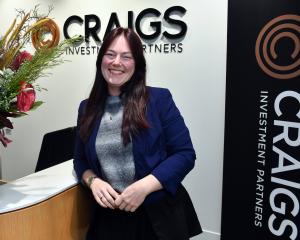Commercial property investor confidence nationally is down 10% in the quarter to September, the largest decline in the seven years of the Colliers International survey.
However, Queenstown sentiment still tops the country, despite a 9% decline.
A combination of China's slowing economy, plunging dairy payout forecasts and stock exchange volatility have all been negatives for investors.
Nationally, the number of optimistic investors outnumbered pessimists by 27% in the quarter to June, but that fell to 17% for the September quarter. Queenstown declined from 61% optimists to 52%, but in Dunedin, it declined from 6% to 7%; pessimists overriding optimists.
Colliers' associate director of research and consultancy, Chris Dibble, said that combined with local influences, there had been a number of high profile external factors contributing to the latest confidence decline.
''China's slowdown and share market volatility at the time of the survey boosted the number of pessimists about the future of New Zealand's economy,'' he said in a statement yesterday.
Concerns also increased around the value of New Zealand commodity prices as dairy payouts took a tumble, he said.
''These events likely impacted on investors' expectations of future property performance,'' Mr Dibble said.
For the past six quarters, investors in Whangarei and Palmerston North had been at double digit negative confidence and Dunedin close behind, in single digit negatives for five of the six quarters.
''Investors are the most confident about Queenstown's prospects, with a net positive 52% of investors optimistic about the next 12 months,'' he said, the previous quarter having been 61%.
Queenstown, Auckland and Tauranga/Mt Maunganui investors had for the past six quarters been in a positive range, from around 40% to almost 70%.
''Indications are that investors believe higher levels of economic growth will not be sustained over the long term. This is a reasonable expectation,'' Mr Dibble said.
New Zealand's economic growth has been one of the highest in the OECD for some time and was now returning to a more moderate performance outlook.
''This will see property investors recalibrate their expectations,'' he said.
Mr Dibble said that overall nationally there were still more optimists than pessimists, and factors such as lower exchange rates, record high net migration, growing tourism levels and low mortgage interest rates would keep momentum positive.
Auckland had experienced a significant decrease in confidence, dropping 20% from the previous quarter to a net positive 42%.
''This ... indicates that maintaining high levels of optimism is challenging anywhere in the country,'' he said.












